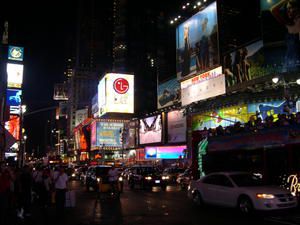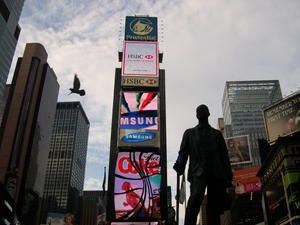| The US Electoral College | |||
How does the Electoral College work? Each state has a number of electors in the Electoral College equal to the total of its US senators (always two) and its representatives, which are determined by the size of the state's population. Technically, Americans vote for the electors not the candidate. California, the most populous state, has 55 electoral votes. A few small states and the District of Columbia have only three. There are 538 electors in the College. In all but two states, Maine and Nebraska, the College works on a winner-takes-all basis. The winner of the popular vote in a state gets all the Electoral College votes in that state. To become president, a candidate needs 270 Electoral College votes. The winning candidate does not need to win the national popular vote. Why was the system chosen? When the United States was founded, a national campaign was almost impossible given the communications; states were jealous of their rights; political parties were suspect and the popular vote somewhat feared.
Another factor was that Southern states favoured the College system. Slaves had no votes but counted as three-fifths of a person for computing the size of a state's population. The original idea was that only the great and the good in each state would make up the electors in the Electoral College. Over the years the College has been changed to better reflect the popular will. Isn't it unfair that the winning candidate might get fewer popular votes? This is seen as a major drawback of the system. In 2000 Al Gore won 48.38% of votes nationwide compared to George Bush's 47.87%. Ralph Nader took 2.74%. Yet Mr Bush won because he got 271 Electoral College votes compared to 266 for Mr Gore. The winning votes came from Florida whose 25 College seats all went to Mr Bush despite the difference between the two in the state's popular vote being only 537. A similar thing happened in 1888 when Benjamin Harrison won in the College despite having fewer popular votes than Grover Cleveland. Another drawback is that in many states the result is a foregone conclusion and there is thus little incentive for the individual to vote. It is also a disincentive for candidates to campaign there. So what are the advantages? The Electoral College system is respected for its historical roots and because it does usually reflect the popular vote. It also gives greater weight to smaller states - one of the checks and balances the US Constitution values. For example, the largest state, California, has 12.03% of the US population but its 55 Electoral College votes represent only 10.22% of the College total. Wyoming, a sparsely populated state, has 0.18% of the US population but its three seats in the Electoral College give it 0.56% of the College votes. The College system also means that a candidate needs to get a spread of votes from across the country. What happens if no candidate gets a majority of Electoral College votes? The decision is taken by the House of Representatives, because its seats are in proportion to the population and therefore reflects the popular will better than the Senate. Each state delegation, however, has only one vote, which means that the majority party in each delegation controls the vote. An absolute majority of states is required for election.
The vice-president is chosen by the Senate, with senators having an individual vote.
Are the electors in the College bound to vote for their candidates? In some states they have a free vote but in practice they vote for the candidates they are pledged to. In other states they are required to do so. From time to time, individuals or small groups, called "faithless" electors, vote for another candidate but this has happened only rarely and no result has been changed by it. In 2000 an elector from the District of Columbia abstained.
If the result is extremely close, a "faithless" elector could cause real trouble. The issue would probably have to be decided by the courts. The electors are chosen by the parties before the election, often in a vote at a convention. The electors then meet in state capitals after the election (this year on Monday, 13 December) to cast their votes. The results are formally declared to the Senate on 6 January. The new president is inaugurated on 20 January. | |||



 TEACHER BLOG
TEACHER BLOG


